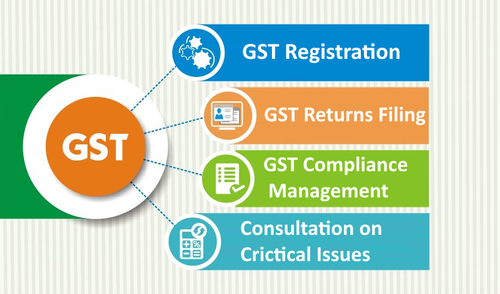How to Locate the Best GST Registration Services in Singapore Rapidly
How to Locate the Best GST Registration Services in Singapore Rapidly
Blog Article
Throughout: The Ultimate Roadmap to GST Enrollment for Services Looking For Financial Stability
Browsing the intricacies of Item and Provider Tax Obligation (GST) enrollment is an important step for services making every effort for financial stability. Damaging down the roadmap right into workable steps can improve the registration journey for organizations looking to improve their monetary standing.
Comprehending GST Fundamentals
Digging into the essential principles of Goods and Provider Tax Obligation (GST) is crucial for obtaining a thorough understanding of its effects on businesses and the economic situation. GST is a value-added tax levied on many products and solutions for domestic usage. It has actually replaced multiple indirect tax obligations that existed in the pre-GST era, improving the tax structure and enhancing convenience of doing service in India. Under the GST system, both items and services are strained at a certain rate, which is determined based upon their classification. If their annual turnover goes beyond the threshold limit established by the government, businesses are needed to register for GST. Input Tax Credit History (ITC) is a considerable attribute of GST, enabling businesses to claim credit scores for taxes paid on inputs, decreasing the overall tax burden. Recognizing the basics of GST is essential for businesses to adhere to tax obligation regulations, manage their funds efficiently, and add to the nation's financial growth by taking part in a transparent tax system.
Qualification Criteria for Registration
To register for GST, organizations have to fulfill details qualification standards developed by the federal government. The main qualification demand is that any type of company included in the supply of goods or services with an annual aggregate turnover above the threshold limitation set by the authorities need to register for GST. As of the current policies, the threshold limit for GST registration is an annual accumulation turn over of 40 lakhs for companies running within a state, with the exception of special group states where the restriction is 20 lakhs. In addition, certain companies are required to sign up for GST irrespective of their turn over, such as interstate vendors, laid-back taxed persons, and companies reliant pay tax under the reverse charge device. It is vital for companies to thoroughly examine their turnover and purchase types to identify their GST registration responsibilities accurately. Failing to register for GST when eligible can cause penalties and lawful consequences, making it crucial for businesses to follow the specified eligibility standards.
Papers Needed for Enrollment
Having actually satisfied the qualification requirements for GST registration, services should currently ensure they have the requisite records in location to continue with the registration procedure effectively. The records required for GST enrollment usually include evidence of organization constitution, such as partnership act, registration certification, or incorporation certification for various types of organizations. Additionally, services require to offer records establishing the primary area of service, such as a rental arrangement or electrical energy bill.
Step-by-Step Enrollment Process
Starting the GST registration process entails a collection of structured actions to ensure a certified and smooth enrollment for companies. The very first step is to visit the GST portal and submit the enrollment kind with exact details of business entity. Following this, the applicant gets a Momentary Reference Number (TRN) which is used to resume the application procedure if it's not finished in one go.
Following, all called for records as per the checklist provided by the GST portal additional info need to be submitted. These papers commonly consist of evidence of organization enrollment, address and identification evidence of marketers, monetary statements, and company entity's PAN card.

Post-Registration Conformity Guidelines

Final Thought
Finally, organizations looking for monetary stability must understand the essentials of GST, fulfill qualification requirements, gather necessary records, adhere to the detailed registration process, and comply with post-registration guidelines - Best GST registration services in Singapore. By sticking to these actions, organizations can guarantee conformity with tax policies and keep economic stability in the long run
In addition, specific businesses are called for to sign up for GST irrespective of their turn over, such as interstate distributors, laid-back taxable individuals, and companies accountable to pay tax under the reverse charge device.Having fulfilled the eligibility criteria for GST enrollment, services should currently ensure they have the requisite documents in location to proceed with the enrollment procedure effectively. The papers needed for GST registration typically consist of proof of service constitution, such as partnership act, registration certification, look at here now or consolidation certificate for different types of companies. Furthermore, businesses need to give files developing the primary area of company, such as a rental arrangement or electrical power costs.Commencing the GST registration procedure involves a series of organized steps to ensure a compliant and smooth registration for organizations.
Report this page